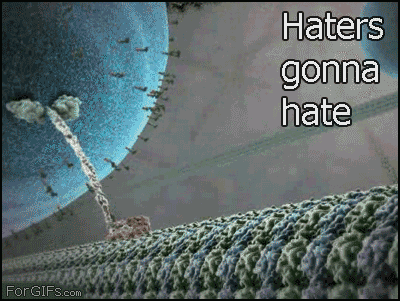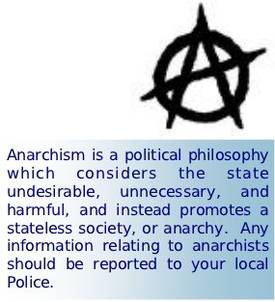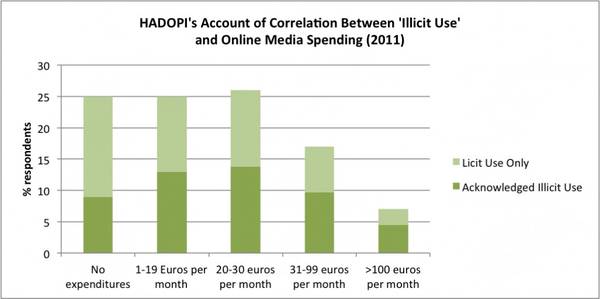The Latest from Boing Boing |  |
- Gweek 011: “Why we get fat”
- Freedom of Information requests show that UK copyright consultation was a stitch-up; Internet disconnection rules are a foregone conclusion
- Stephen Fry debating Ann Widdecombe on the worth of the Catholic Church
- Incubot shiroi “voltron + shiroi nekobot USB” Japan tsunami relief
- Fire-breathing pony
- Haters Gonna Hate: microscopic edition
- Perma-cookie wars continue: KISSMetrics sneaks cookies back onto your computer even if you turn off every cookie vector
- Official London anti-terrorist publication says anarchists should be reported to local police
- French copyright enforcers: “Pirates are big spenders on legit content”
| Posted: 01 Aug 2011 05:00 AM PDT Gweek is Boing Boing’s podcast about comics books, science fiction, games, gadgets, and other neat stuff. In this episode, Mark reviews the psychological thriller Tropic of Night by Michael Gruber, a health book called Why We Get Fat, by Gary Taubes, a comic book called All Nighter, and the Canon S95 digital camera. Download Gweek 011 as an MP3 | Subscribe to Gweek via iTunes | Subscribe via RSS | Download single episodes of Gweek as MP3s This posting includes an audio/video/photo media file: Download Now |
| Posted: 01 Aug 2011 03:24 AM PDT Last year, the UK government held consultation into its proposed Digital Economy Act, an extremist copyright proposal created by the unelected Business Secretary Peter Mandelson. The process that followed was as dirty as any I’d ever seen (for example, the then-head of the BPI wrote an amendment proposing a national censorship regime that a LibDem Lord then introduced on his behalf. But it turns out that there was much more sleaze below the surface. Documents released in response Freedom of Information requests show that Mandelson had already made up his mind from the start about the Act’s most controversial section: the rules that said that users would have their Internet connections terminated if enough unsubstantiated infringement claims were made against their households. The “compromise” that the Act made was to suspend this measure initially, and bring it into force if the other measures in the Act failed to substantially reduce infringement. Critics called it the sham it was, saying that a 70 percent reduction in file-sharing was a delusional target, and the FOI documents show that the Act’s supporters agreed — they only intended the compromise as a means of smuggling in France-style disconnections. Which is to say that the whole business was a sham: the Business Secretary and his pals in the record industry had stitched the whole thing up from the start, and the thousands upon thousands of Britons who wrote in never had a hope of changing things. That’s why the Act was crammed through Parliament without debate in the “wash-up,” hours before Labour dissolved the government. One consultation respondent told TorrentFreak: "As someone who went to considerable effort to submit a rational and evidence-based response to the consultation on these issues, I am disappointed, although not surprised, to see that the outcome was predetermined." The UK Pirate Party is a little more scathing. Digital Economy Act: A Foregone Conclusion? |
| Stephen Fry debating Ann Widdecombe on the worth of the Catholic Church Posted: 31 Jul 2011 09:36 PM PDT Here’s a fascinating ten-minute animation to accompany audio from a debate between Stephen Fry and Ann Widdecombe, a UK Tory politician turned novelist. They’re debating the motion, “The Catholic Church is a force for good in the world” (Widdecombe is a convert from Anglicanism to Catholicism), and Fry is both charming and relentless, and scores some incredible points. If you like rhetoric, atheism debates, philosophy and animation, this is ten minutes very well-spent. iq2 Shorts – Stephen Fry vs Ann Widdecombe: Catholic Church Debate (Thanks, Chippy!) |
| Incubot shiroi “voltron + shiroi nekobot USB” Japan tsunami relief Posted: 31 Jul 2011 03:47 PM PDT
Greetings from Tokyo! Sean Bonner, who I’ll be meeting in a few days along with the Safecast crew, shares word of a nifty, limited-edition USB gadget to benefit Japan tsunami relief.
|
| Posted: 31 Jul 2011 10:55 AM PDT
|
| Haters Gonna Hate: microscopic edition Posted: 31 Jul 2011 10:53 AM PDT Funniest captioning of a motor-protein ever. (after the jump, so I don’t get lynched for a 2.5MB image on the front page) |
| Posted: 31 Jul 2011 08:37 AM PDT
A group of respected security researchers have published a paper documenting the tactics used by KISSmetrics — a company that counts Hulu and many other Internet giants among its customers — to install and read back cookies on your computer even if you don’t want them. Using a kind of kitchen-sink approach, KISSmetrics is able to track your computer even if you’ve got cookies, Flash cookies and other common cookie-setting vectors turned off. It’s one thing for companies to say that they only gather information about users who allow such tracking; it’s another thing for a company to go to endless lengths to circumvent their users’ best attempts to shield themselves from tracking.
Flash Cookies and Privacy II: Now with HTML5 and ETag Respawning (paper) Researchers Expose Cunning Online Tracking Service That Can't Be Dodged (Wired) (via /.) |
| Official London anti-terrorist publication says anarchists should be reported to local police Posted: 31 Jul 2011 08:30 AM PDT
(More seriously: Seriously? These are the terrorism experts who are making official evaluations of risk and official plans to mitigate it? Seriously?) City Of Westminster Counter Terrorist Focus Desk 29th July 2011 (PDF) |
| French copyright enforcers: “Pirates are big spenders on legit content” Posted: 31 Jul 2011 08:21 AM PDT
Another Day, Another Study That Says ‘Pirates’ Are The Best Customers… This Time From HADOPI |
| You are subscribed to email updates from Boing Boing To stop receiving these emails, you may unsubscribe now. | Email delivery powered by Google |
| Google Inc., 20 West Kinzie, Chicago IL USA 60610 | |







No comments:
Post a Comment